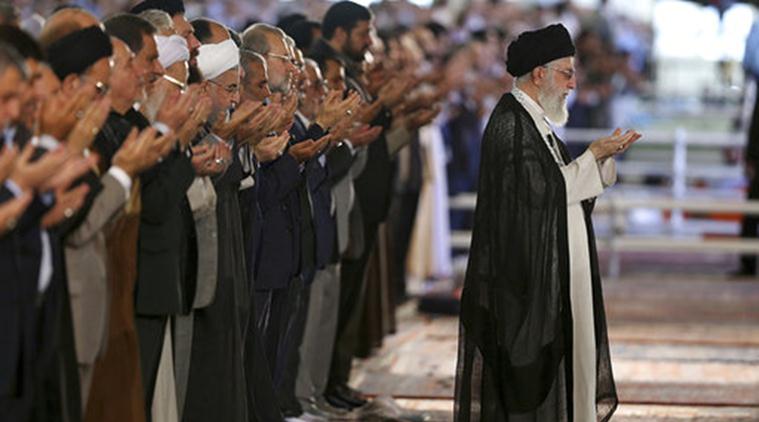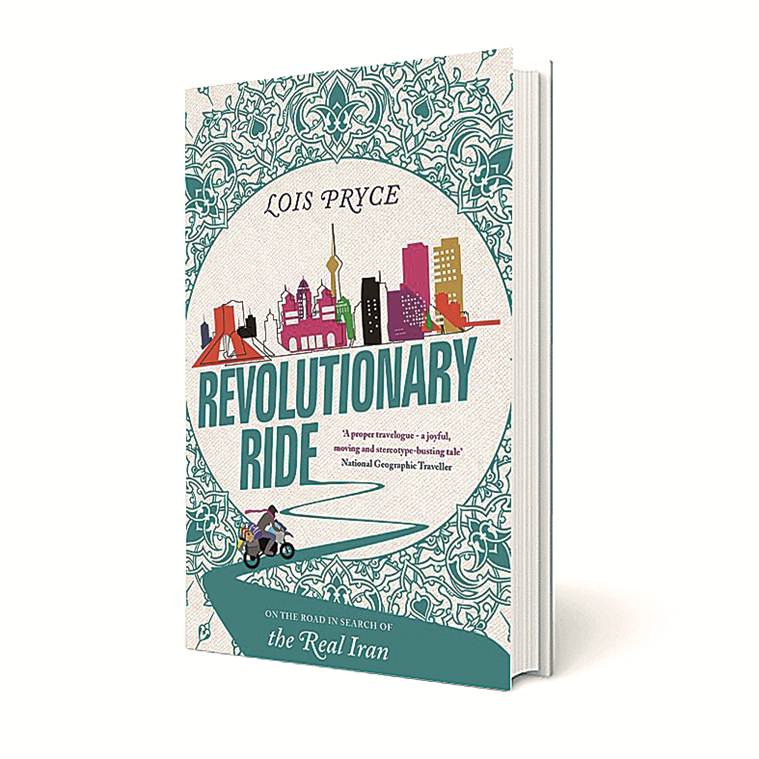The Revolutionary Ride book review: The Price of Happiness
Next to him is Iran’s Supreme Leader Ali Khamenei, who, unlike Khomeini, smiles shyly and offers Pryce a cuddly “Father Christmas” look — which is a respite, and the beginning of all good things.
Written by Anshika Ravi | Updated: November 10, 2018 1:33:07 am

In this photo released by an official website of the office of the Iranian supreme leader, Supreme Leader Ayatollah Ali Khamenei leads Eid al-Fitr prayer marking the end of the Muslim holy fasting month of Ramadan, at Imam Khomeini Grand Mosque, in Tehran, Iran, Monday, June 26, 2017. (Office of the Iranian Supreme Leader via AP)
In November 2011, Iranian protesters stormed the British embassy in Tehran, smashed windows, tore down the British flag and threw firebombs into the embassy compound in retaliation against economic sanctions imposed by Britain. A couple of months later, British travel writer Lois Pryce set off on a journey of 3,000 miles on her bike to Iran — on a written request of an absolute stranger: “We are not terrorists. I wish that you will visit Iran.”
But Pryce is unnerved at the country’s religious account of torture and executions. Her first dreaded encounter is with Ayatollah Khomeini, who, though dead for decades, “monitors” her moves fiercely from giant murals and billboards, likely unhappy with a Western presence on his land. Next to him is Iran’s Supreme Leader Ali Khamenei, who, unlike Khomeini, smiles shyly and offers Pryce a cuddly “Father Christmas” look — which is a respite, and the beginning of all good things.
In Revolutionary Road, Iranians steal your heart, for they tell you how they discovered happiness and freedom amid all the hostility conferred by the country’s religious order. Pryce’s journey feels utterly delightful, filled with heartwarming accounts of all those who refused to allow a despotic regime to get in the way of living a normal life, and those who shunned a liberal life in the West and returned to Iran just because it “felt more real”. As Pryce soldiers on, she draws inspiration from the young, many of whom have resolved to not live a life with restrictions. She lives each day by stories — some of love, some of loss.
The biggest strength of Revolutionary Ride is that it slams stereotypes about life in an Islamic republic — effortlessly — and with a dash of humour. She keeps the narrative away from the brutality and the gore — which is unexpected — but a relief at the same time. It is easy to be drawn to Pryce’s style, for she writes as she acts — fluently and with a certain playfulness, which makes this Revolutionary Ride a moving and entertaining journey on the whole.






















 Revolutionary Ride; Lois Pryce; Nicholas Brealey Publishing; 304 pages; Rs 499
Revolutionary Ride; Lois Pryce; Nicholas Brealey Publishing; 304 pages; Rs 499
No hay comentarios:
Publicar un comentario